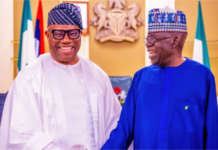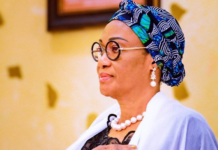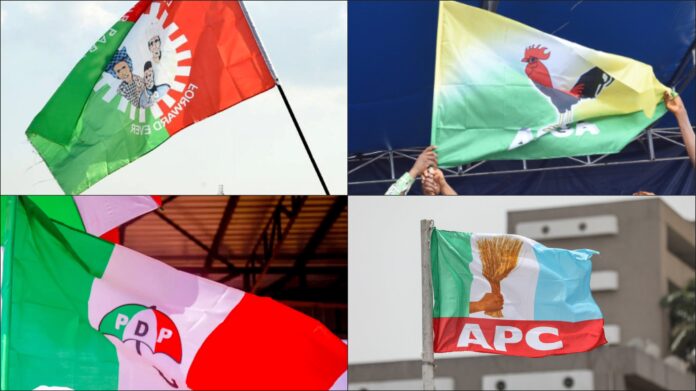From being totally under the ‘capture’ of one political party when the country returned to democracy in 1999, the Southeast region has seen its people embrace a multiplicity of parties, perhaps in lieu of the quest to get a shot at the presidency. As the region with the highest proliferation of parties, and with the goal still far from being achieved, it is time the region rethinks its approach, LAWRENCE NJOKU writes.
Five states. Four political parties. A people sharply divided along party lines. And an aspiration to produce the President of the country in abeyance. This is the current democratic experience in Southeast Nigeria.
Made up of Enugu, Anambra, Ebonyi, Imo and Abia states, four parties namely, the Peoples Democratic Party (PDP), All Progressives Congress (APC), All Progressives Grand Alliance (APGA) and Labour Party (LP) currently hold sway in the region. The experience over the years also paints the region as an easy launch pad for new political parties.
While the PDP controls Enugu state, the APC is in charge of Ebonyi and Imo states, the APGA rules in Anambra state, while Abia state is under the capture of new entrant, Labour Party.
But the political nomenclature of the region was not always like this. The zone only assumed an unstable political nature after the general elections of 1999. That election had enthroned the PDP in the region, as the party won in the five states; a development that placed it as one of the strongholds of the party in the country.
That dominance was, however, not sustained. The general election of 2003 had punctured the smooth run of the party in Anambra state through the court that declared its governorship victory null and void, and in favour of the then governor, Peter Obi from the APGA. APGA had since refused to relinquish her control in the state.
Few years later in 2007, the Peoples Progressive Alliance (PPA) also sprang up and took over in Imo state, dislodging the PDP, which ruled from 1999 to 2007. It was the first time the PPA, which got her registration less than two years to the election, was coming on ballot.
The PPA could not also sustain its hold on Imo as Ikedi Ohakim who benefitted from the platform ran back to the PDP and eventually lost his reelection bid to APGA. The APGA took over in 2011 with Rochas Okorocha as governor.
Three years later, Okorocha had carried the mandate of APGA to the APC. He went for reelection on the APC platform and won. That was what birthed APC in Imo state, which has now been sustained by incumbent governor, Hope Uzodimma.
In 2020, APC also made inroad into Ebonyi state when the then governor, Dave Umahi, jumped ship from PDP, while the LP was birthed in Abia state through the 2023 general elections, which it won against the PDP.
It took the general elections held in March 2023 for LP to dislodge the PDP in Abia state. The PDP had held the sway in the state since 1999.
In addition to these, there have also been an admixture of various elected officials from different political parties at the National and State Houses of Assembly. For instance, until he jumped ship recently, the Senator representing Anambra south, Ifeanyi Uba emerged on two occasions from the newly formed Young Progressives Party (YPP).
These developments appear to have placed the southeast as one of the regions where any political party survives as long as the candidate has a message that appeals to the people.
Investigations by The Guardian showed that individual political interests have fueled the proliferation of political parties in the region. The tendency is that fair weather political office holders have capitalised on loose constitution, their affluence and resources to switch parties and foist them on the people as they wish.
Dissecting the issue, political observers have said that disagreements among politicians and internal party crises, among other factors, are to be blamed for the multiplicity of the political parties in the region, even as some noted that the development has opened the political space for people to aspire.
When he spoke to The Guardian soon after the 2023 general elections, a University teacher, Jossy Ukaegbu, stated that poverty and greed are responsible for the multiplicity of political parties, stressing that “the same people are running from one party to another and leaves nothing as impact on the society.”
“If you have followed the progression of our politicians in the zone, you will discover that they all started from a particular party. That is why they are not impacting anything new other than their personal interests,” he stated.
Citing the case of Okorocha who left the APGA and joined APC, he stated that it was borne out of “uncertainty of the future of his political career. He had gauged the mood and discovered that with the coming together of forces into the APC, there was going to be a serious problem for smaller parties like the APGA. That was why he moved. It was not in the interest of Imo people but basically to hide under the behemoth to fester his career. You could have discovered that he got reelected into office and proceeded to the National Assembly. All those were personal to him and not because he loves those that elected him. He never for once discussed his move to another party with anyone.”
He continued: “When Dave Umahi imported APC into Ebonyi state after rejecting PDP, he stated he was doing so because he wanted to place Southeast on the top burner in the politics of the country. He said he was doing so because the APC was the only political party that could give Igbo presidential ticket in the 2023 general elections.
“We have gone past the presidential primary of the APC, which he even contested, the APC did not give Igbo ticket and Umahi did not resign or queried it. Rather he remained there and returned to snatch the senatorial zone ticket of his Ebonyi south to contest the election. The elections have come and gone.
“His party had gone to the extent of rewarding him with a Ministerial slot that he decided to quit the seat allegedly gained by the votes of his people. If indeed, he has been serving the interest of his people, why would he leave elective office for an appointive one? So, it is all about interest. There is no defined ideology.”
A political analyst, Dr Stephen Nze, stated however that the quest to rule the country had always driven the proliferation of political parties in the southeast region. He added that since the return of democracy in 1999, the Igbo had sought to produce the president of Nigeria, stressing that being disappointed at every occasion led them into embracing several political platforms for the purpose.
Nze said: “Ndigbo embraced PDP because they felt the party would provide answers to the power quest. It has never worked. This was responsible for some politicians in the region forming regional parties like the APGA, PPA, among others, to advance this desire. Those who saw that the regional political parties would not do this for Ndigbo started embracing the APC.
“Unfortunately, the APC still does not appear to have answers to their quest. That was why when the LP gave her presidential ticket to Peter Obi in 2023, Ndigbo moved to LP in large numbers to vote for Peter Obi. If you had seen the outcome of that election, it was such that Obi didn’t lose in any of the five states in the region.
“So that is the situation. The contest used to be in the PDP. That is why every average politician in Igboland will tell you that PDP has not been fair to Ndigbo; that PDP has not repaid the 16 years of strong loyalty it has received from Ndigbo. So, take it that the people of the region are prepared to follow any political party that can give Igbo opportunity to become president of Nigeria.”
Nze noted that the trend would continue until Ndigbo realises the desire to rule the country, adding that politicians in the zone would also use platforms that could guarantee their political interests.
A stalwart of the PDP in Anambra state, Damian Ozoeze, expressed the view that the level of proliferation of political parties in the region was an indication that the Igbo have come of age politically and are prepared to follow any candidate or person that can address their interests.
“They join political parties because they want the opportunity to serve and realise their ambition. They vote individuals no matter their political platforms because they believe in their message. You have observed that all the leading political parties in Nigeria at the moment have been embraced by Ndigbo. That is why if you go to the National Assembly today, you will see those whose parties were not given chances during the 2023 general elections, occupying positions.
“Our people like playing politics and they play it to the best of their ability. They like political parties that could allow them to express their interests. That is why today, anything political party in Nigeria has membership in the southeast region. I can say there is a great level of exposure we have here in politics. Hence, if we believe your message, we will work with you,” he said.
Ozoeze refused to accept that greed has fueled the level of proliferation in the region, stressing that it was borne from the desire to reposition the zone politically to play its role in the country.
He added that the proliferation of political parties has reduced political tension in the region, explaining that “previously, everyone was lumped under one or two party platforms, and that breeds so much discord and tension. Now, you must be at your best to convince people to support you. Before you get your party ticket, they must have this conviction that you are capable of winning the election. The level of proliferation we have in the zone has given opportunity to people to ventilate their ideas on governance.
“Take a look at Abia state, where the LP is in control. You will see that all those who have held onto power for so long through the PDP have been rested and new people have emerged. This is something that will create problems if you had asked those people to give way for a new set of politicians. That is the way it is. ”





